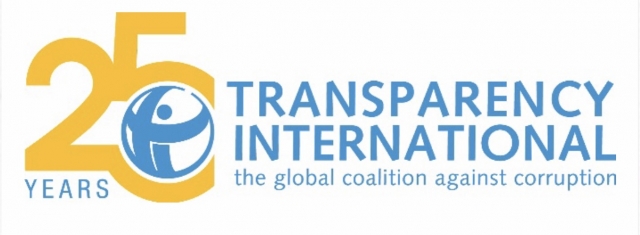News
citizens in Middle East and North Africa think corruption is worsening
New corruption survey

USPA NEWS -
Despite clamour for change, citizens think corruption is worsening in the Middle East and North Africa
New corruption survey shows two thirds of people think their government is performing badly.
Berlin, 11 December 2019 ““ A new report by Transparency International reveals that only 28 per cent of citizens in six countries in the Middle East and North Africa think their government is doing a good job at fighting corruption. In a region that has seen mass protests against corruption in 2019, two in every three (65 per cent) citizens think that corruption increased in the previous 12 months.
New corruption survey shows two thirds of people think their government is performing badly.
Berlin, 11 December 2019 ““ A new report by Transparency International reveals that only 28 per cent of citizens in six countries in the Middle East and North Africa think their government is doing a good job at fighting corruption. In a region that has seen mass protests against corruption in 2019, two in every three (65 per cent) citizens think that corruption increased in the previous 12 months.
The report, Global Corruption Barometer (GCB) -- Middle East and North Africa, reveals that more than one in five people (22 per cent) who accessed public services, such as health care and education, paid a bribe in the previous year. This is equivalent to approximately 11 million people in the six countries surveyed.
In addition, in Jordan, Lebanon and Palestine, more than a third of citizens or approximately 3.6 million people, also used their personal connections, or what is known regionally as wasta, to get the services they needed.
In addition, in Jordan, Lebanon and Palestine, more than a third of citizens or approximately 3.6 million people, also used their personal connections, or what is known regionally as wasta, to get the services they needed.
For the first time, the survey asked respondents in Jordan, Lebanon and Palestine about their experiences of sexual extortion, or sextortion, a form of corruption in which sex is the currency of the bribe. Shockingly, one in five citizens experiences sextortion when accessing a government service, or knows someone who has.
“Corruption disproportionately affects the most vulnerable people, depriving them of free and equal access to public services,“ said Delia Ferreira Rubio, Chair of Transparency International. “People taking to the streets to speak out against corruption is a sign that regular channels for demanding accountability and transparency are inadequate.“
“Corruption disproportionately affects the most vulnerable people, depriving them of free and equal access to public services,“ said Delia Ferreira Rubio, Chair of Transparency International. “People taking to the streets to speak out against corruption is a sign that regular channels for demanding accountability and transparency are inadequate.“
According to the survey, forty-four per cent of people think that most or all parliamentarians and government officials are involved in corruption. This may be why 60 per cent of citizens also report dissatisfaction with how democracy works in their country; and why more than 80 per cent of people in Lebanon, Jordan and Palestine believe government corruption is a big problem.
Despite these grim results, half of citizens still believe that ordinary people can make a difference in the fight against corruption. Governments in the Middle East and North Africa must show genuine political will to fight corruption and take steps to:
Despite these grim results, half of citizens still believe that ordinary people can make a difference in the fight against corruption. Governments in the Middle East and North Africa must show genuine political will to fight corruption and take steps to:
*Strengthen electoral integrity to allow for fair and democratic elections;
*Empower whistleblowers, civil society and media;
*Reduce and prevent wasta;
*Strengthen judicial independence and promote separation of powers;
*Recognize and address specific gendered forms of corruption; and
*Improve transparency and access to information.
*Empower whistleblowers, civil society and media;
*Reduce and prevent wasta;
*Strengthen judicial independence and promote separation of powers;
*Recognize and address specific gendered forms of corruption; and
*Improve transparency and access to information.
Liability for this article lies with the author, who also holds the copyright. Editorial content from USPA may be quoted on other websites as long as the quote comprises no more than 5% of the entire text, is marked as such and the source is named (via hyperlink).





